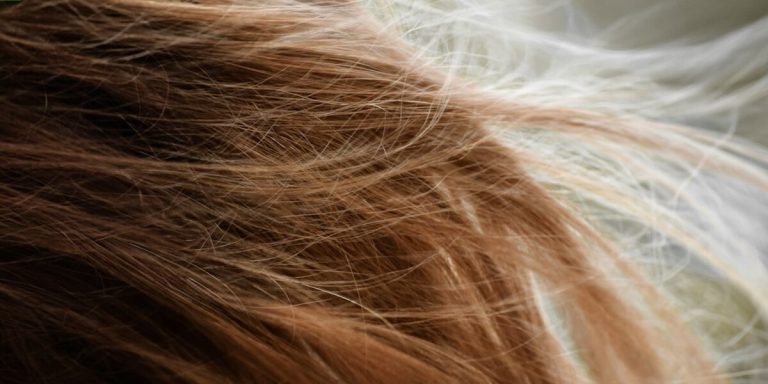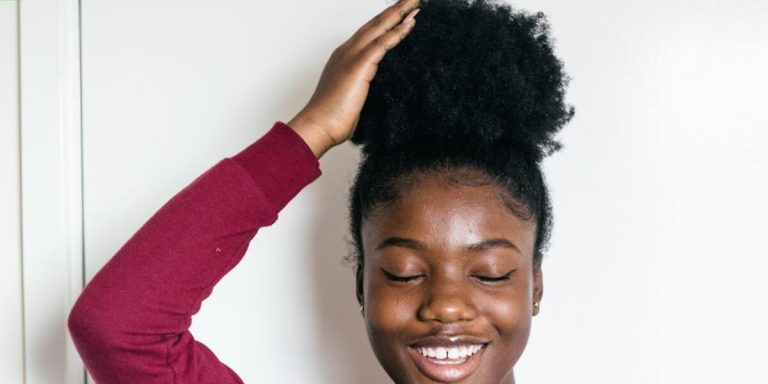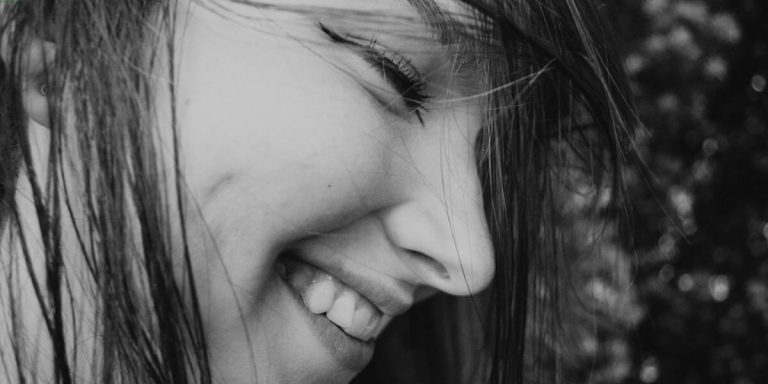Hair Loss After Menopause Treatment: Conquering the Challenge with Confidence
Hair loss after menopause, albeit a common occurrence among women in their post-menopausal phase, can be emotionally taxing. The hunt for an efficient hair loss after menopause treatment often ends up being a challenging task due to the plethora of options available and lack of guidance. The key factor here is understanding that not all solutions are one-size-fits-all as every woman’s body adapts differently.
Our focus today is on how you can navigate this challenge with confidence by exploring various treatments made particularly for such situations. We’ll dive into effective strategies including lifestyle changes, topical therapies, medications and even surgical interventions if necessary- each offering different benefits to help restore that lovely mane while also adapting to your unique physiological needs.
Did you know?
Did you know that almost 40% of women experience noticeable hair loss after menopause? This is often due to hormonal changes and lowered estrogen levels which tend to weaken the hair follicles.
Understanding Hair Loss After Menopause
Hair loss after menopause is an issue that many women face with the shift in hormonal balances. The reduction of estrogen and progesterone, hormones that help hair grow faster and stay on the head for longer durations, often leads to thinning hair among post-menopausal women. However, it’s not just these hormone changes; age also plays a crucial role as our bodies experience various physiological shifts which can impact overall health including our crowning glory.
This condition might seem alarming at first; nevertheless, understanding this natural occurrence could indeed alleviate some worries. Hair growth operates on a cycle – growing stage (anagen), resting phase (telogen) and finally shedding off (exogen). Normally during menopause due to temperamental hormonal fluctuations there’s shortening of anagen phase leading to smaller strands replacing bigger ones thereby giving impression of less dense or thin hairs.
However, technological advancements have led us into an era where treatments for such issues are now more effective than ever before. A wide range of solutions ranging from over-the-counter topical ointments like Minoxidil recommended by dermatologists worldwide globally aims at extending “growing” period thus enabling follicles sprout thicker strands overtime reversing apparent baldness caused by aging process particularly after menopause.
Causes of Post-Menopausal Hair Thinning
Hair thinning after menopause is a common but often overlooked issue. One primary cause lies in the hormonal changes women undergo during and post-menopause, particularly declining levels of estrogen. This hormone plays a significant role in promoting hair growth; thus its deficiency tends to lead to hair loss.
Another contributing factor can be an underactive or overactive thyroid gland, also known as hypothyroidism or hyperthyroidism respectively. These conditions disrupt your body’s metabolism leading to various symptoms including thinning hair.
Stress too has its part in adding fuel to the fire when it comes about post-menopausal hair loss issues. Both physical stress due to illness or surgery and emotional stress from life-changing events like retirement or losing loved ones can trigger temporary patches of baldness termed telogen effluvium.
Lastly, genetics should come into consideration when examining reasons for this problem because if your mother had experienced similar trouble during her menopause you might inherit that genetic predisposition towards experiencing it too.
Hormonal Changes and Their Impact on Scalp Health
During menopause, a woman’s body undergoes significant hormonal changes, which can adversely affect scalp health leading to hair loss. This is predominantly due to the decline in estrogen levels -a hormone responsible for healthy follicle growth and helping maintain lush, thick strands.
Firstly, let’s delve into how these hormones play their part. Estrogen generally prolongs the growth phase of your hair cycle known as anagen phase. When estrogen level drops during menopause, this phase shortens causing hairs to fall out sooner than they should.
Simultaneously another hormone DHT (Dihydrotestosterone), which often leads to thinning hair becomes more prevalent with declining estrogen levels battling it off. DHT shrinks the follicles making them produce thinner and weaker strands eventually resulting in apparent bald patches.
Now that we understand how hormonal imbalance affects our tresses during this stage let’s talk about treating ‘Hair Loss after Menopause’.
1) Topical Treatments: The use of minoxidil has been proven effective for many suffering from male or female pattern baldness irrespective of cause; including those triggered by fluctuations surrounding menopausal stages.
Effective Treatments for Post-Menopausal Hair Loss
Post-menopausal hair loss can be a significant concern for many women, triggering self-esteem issues and causing emotional distress. With menopause, estrogen levels decline drastically leading to an imbalance that might result in decreased hair volume or growth. But don’t fret!
There are effective treatments available today that aim to reduce this post-menopausal effect.
One of the most recommended solutions is Minoxidil topical treatment – FDA approved for female pattern baldness regardless of age. It works by prolonging your hair’s natural growing phase thus allowing more time for growth resulting in thicker strands over time.
Apart from pharmaceutical options like Minoxidil, hormonal therapy too has been proved beneficial due its ability replenish lost hormones during menopause and henceforth promote healthy hair life cycle.
On the other hand, sprucing up your diet with nutrients vital to follicle health – Vitamins A,C,E; B vitamins particularly biotin; along with Iron and Zinc also forms part of holistic approach towards managing post-menopausal hair thinning challenges.
If you prefer non-drug therapies low-level laser devices could do wonders stimulating cellular activity within follicles as studies have demonstrated improved density using such technology simply at home without any known side effects.Finally adopting gentle care routine including mild shampoos coupled deep scalp massages increases blood circulation there-by promoting overall healthier scalp environment conducive good growth.
Prescription Medications Tailored for Hormonal Balance
The onset of menopause triggers many physiological changes, with hair loss being one of the most noticeable and distressing. The good news is that there are effective prescription medications specifically designed to combat post-menopausal hair loss by addressing hormonal imbalances.
One such medication is Minoxidil. Initially used as a high blood pressure treatment, it’s effectiveness for stimulating hair growth was discovered serendipitously during clinical trials. Today, Minoxidil is often prescribed off-label for women experiencing post-menopausal thinning or baldness.
It works by prolonging the active growth phase of your follicles and can be topically applied directly onto your scalp.
Hormone replacement therapy (HRT) is another widely accepted course. It addresses declining estrogen levels common in menopause that contribute to hair loss among older women. While not strictly a ‘hair loss’ treatment, HRT offers benefits that extend beyond addressing thinning hair. However, consult healthcare providers about the potential risks versus rewards before starting HRT, as each body responds uniquely to this treatment plan.
Finasteride offers another viable solution under supervision from dermatologists/endocrinologists who understand complex interactions between hormones/bodily processes governing them like clockwork precision guiding our bodies’ harmony!
Innovative Therapies: Laser Treatment and PRP
As women traverse the journey of menopause, it’s common to encounter unexpected hair thinning or even loss. This alteration can be rattling, but certainly not invincible with innovative therapies like Laser Treatment and PRP in our arsenal.
Laser treatment is one such cutting-edge therapy that has proven effective in battling post-menopausal hair loss. It leverages Low-Level Light Therapy (LLLT) which disperses photons into scalp tissues. These particles of light are absorbed by weaker cells to encourage faster growth and healthier hair – a benefit for those dealing with slower regeneration during their post-menopausal phase.
The process typically spans sessions over several months, varying based on individual need and response rate. Reassuringly though, experts note almost no side effects due to its non-invasive nature making it a choice solution when considering safety alongside effectiveness in 2023.
Where laser therapy utilizes light energy; Platelet-Rich Plasma (PRP), banks on your body’s natural healing power for reversing hair loss after menopause. The procedure involves extracting plasma from your blood rich in platelets when injected back onto the scalp prompts regrowth through cell repair stimulation.
Lifestyle Adjustments to Manage Menopausal Hair Loss
Transitioning into the menopause period can usher in several changes for women, one of these being hair loss. While this may initially seem daunting and irreversible, there are many lifestyle adjustments that can help manage this situation effectively. Opting for specialized hair care regimens or paying closer attention to diet are a few among the various measures that could potentially mitigate post-menopausal hair thinning.
- Vitamins A, C, D, and E
- Zinc
- Iron
These nutrients nourish follicles to grow healthy strands. To benefit your hair:
- Add more lean proteins like fish or chicken to your meals.
- Include vegetables and fruits loaded with antioxidants.
- Incorporate foods high in omega fatty acids like avocados or walnuts for added benefits according to hair experts.
Maintain a lush mane by focusing on scalp health to combat menopause-triggered alopecia. Nurture your scalp with regular oil massages using coconut or argan oils to hydrate and strengthen roots, preventing premature hair fall due to hormonal shifts during menopause. Switch to gentle sulfate-free shampoos to avoid further drying out your stressed tresses, ensuring healthier hair even after hitting ‘the change‘.
Nutrition’s Role in Supporting Healthy Hair Growth
Good nutrition significantly influences the health of your hair, especially during menopause. When hormonal changes lead to hair loss, adapting certain dietary habits could potentially slow down this natural phenomenon and support healthier growth.
Start by incorporating foods rich in protein into your diet. Hair is primarily made up of a type of protein called keratin- thus eating lean meats, fish, eggs and dairy products can furnish the nutrients needed for healthy locks.
Moreover, iron deficiencies are often linked with hair loss after menopause. It would be best if you focused on consuming plenty of dark leafy greens like spinach alongside other iron-rich sources such as lentils or red meat . This helps maintain robust follicles which propels solid strands growth.
Omega-3 fatty acids are another valuable ally against Menopausal-related thinning. Foods like salmon or walnuts not only boost heart health but also contribute appreciably towards lustrous manes by nourishing membranes surrounding follicular cells thereby promoting active root function.
Vitamin E’s potent antioxidant properties help prevent oxidative stress that might damage scalp tissues leading to deterioration at roots level hence causing shedding . Hence it’s beneficial to habitually include sunflower seeds , almonds etc., packed with Vitamin E in regular meals because they foster intact and resilient tresses .
The Importance of Stress Reduction and Sleep Quality
Stress and sleep quality are two crucial factors that can influence hair loss after menopause. Dealing with these aspects is essential as part of any comprehensive treatment plan aiming to manage post-menopausal hair fall.
Chronic stress has been identified as a primary trigger for telogen effluvium, a condition characterized by excessive shedding of hairs. This often happens in the months following an intense stressful event, making it prominent among women undergoing hormonal changes during menopause.
While you may not be able to avoid certain sources of stress such as your work or personal life situations completely, there are ways in which it’s possible to mitigate their effects on your body–and subsequently on hair health. These include incorporating relaxation techniques like yoga and meditation into your daily regimen; engaging regularly in physical activities such as walking or swimming helps keep cortisone levels (the ‘stress hormone’) low.
Maintaining good nutrition also comes under reducing stress because when the body receives adequate nutrients through balanced meals rich in antioxidants and Omega-3 fatty acids; it is better equipped at dealing with external pressures–thus leading lesser likelihoods toward triggers for conditions like telogen effluvium.
Conclusion
In conclusion, embarking on the journey of managing hair loss after menopause treatment doesn’t have to be a struggle steeped in frustration and uncertainty. It’s more about arming yourself with knowledge about healthy habits, good nutrition, lifestyle tweaks and medication that can make all the difference. Reclaim your lush locks as you walk this path so specific yet so universal—knowing well that confidence is truly the best hairstyle.
Don’t let thinning tresses cloud over any more sunrises for you! Step into our cache of information-filled resources designed specifically around ‘Hair Loss Treatments’. Spend some time browsing through diverse content offering wisdom from various domains—all targeted towards helping women like you take control back from receding follicles.
Start exploring today – because each strand saved counts!







